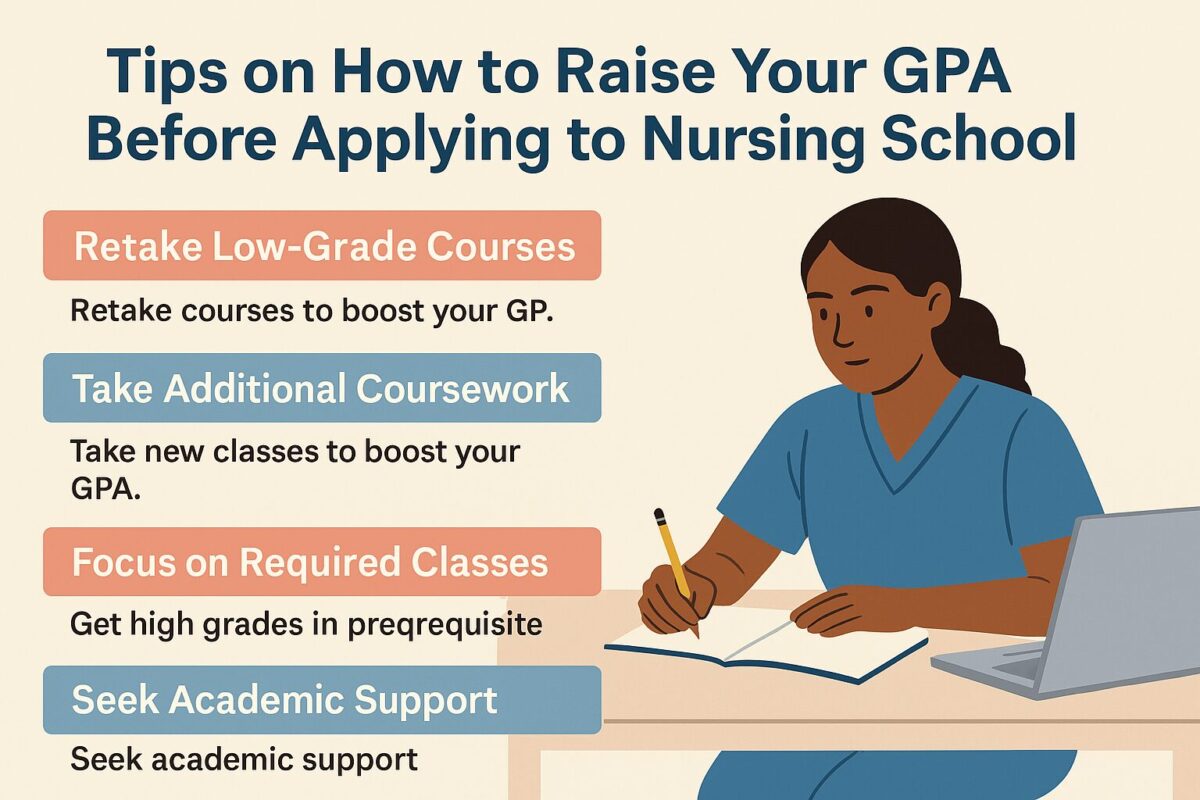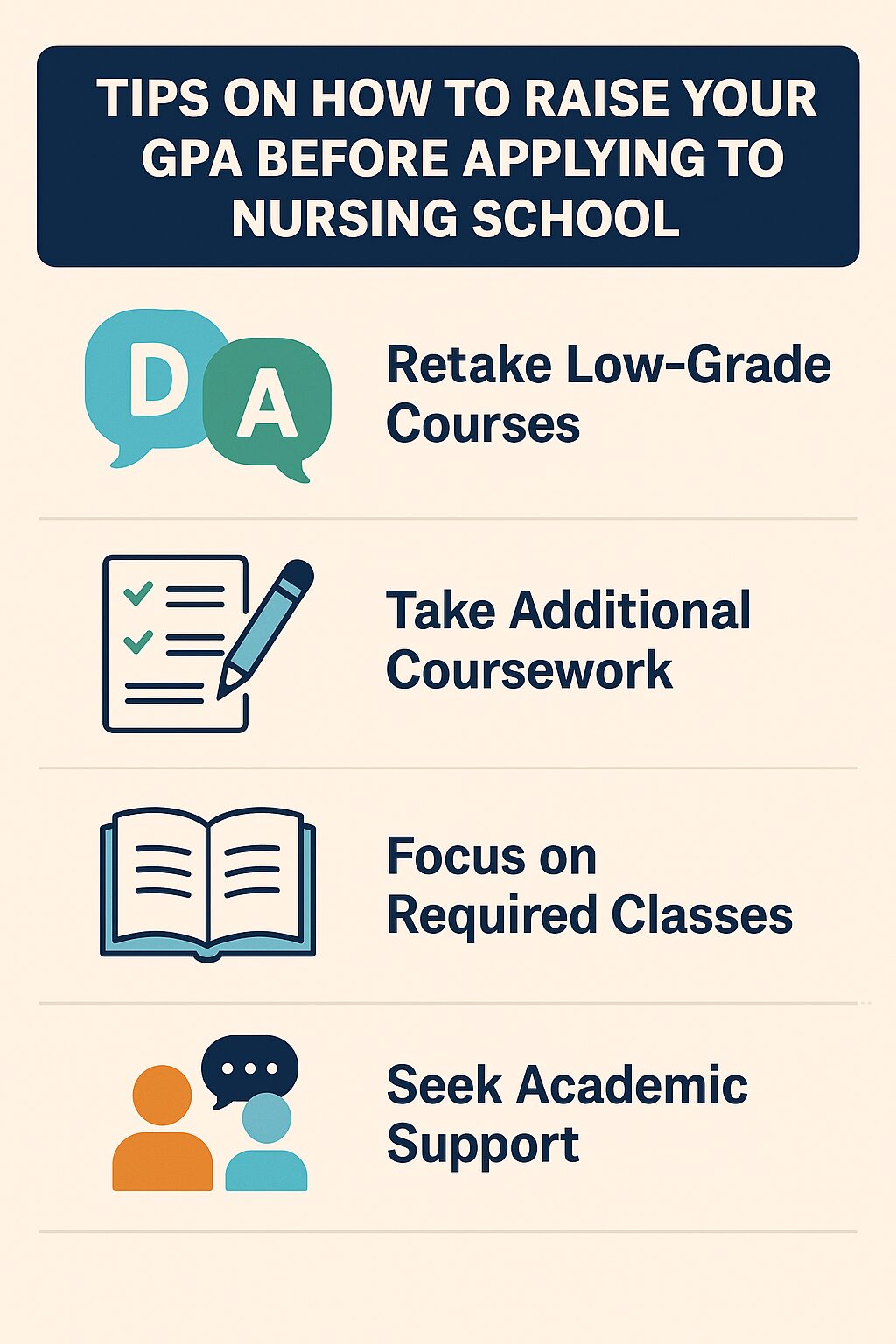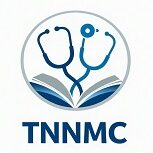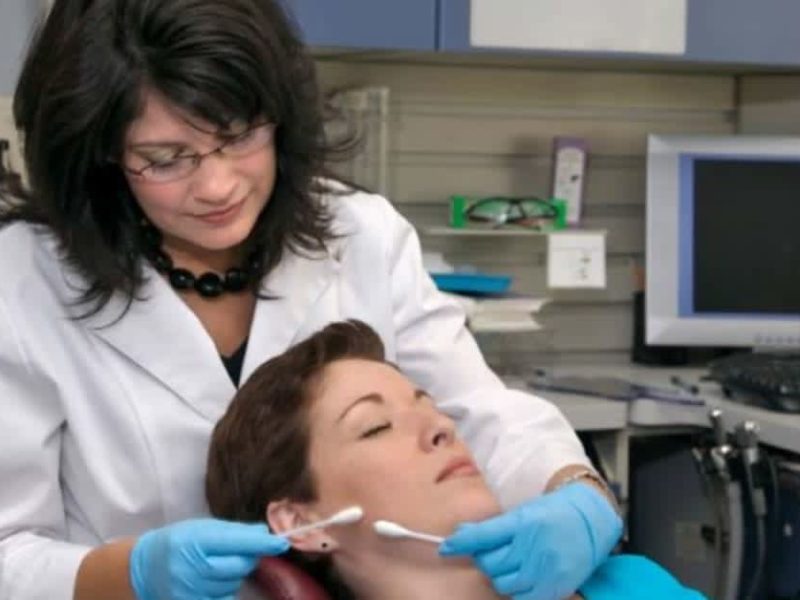Why it is important to raise my GPA before applying to nursing school?
Tips on How to Raise Your GPA Before Applying to Nursing School
Many prospective nursing students focus on how to build their GPA before admission, because getting into a nursing program is highly competitive. If you’re starting from scratch or working to get over past academic struggles, there are successful ways to raise your GPA and make your application shine.
Retake Low-Grade Courses
Retaking courses in which you received poor grades is one of the quickest methods to boost your GPA. Many schools have grade replacement policies, which means that rather than averaging the two together, the new grade you earn in a retaken course replaces the old grade in the calculation of your overall GPA. Thus, the new higher grade will be the one included in your GPA and can increase it substantially. Concentrate on prerequisite or science classes so Anatomy, Physiology & Chemistry, as they carry extra points in nursing admissions.
Take Additional Coursework
To raise your overall GPA, take new classes that you can do well in. Look for general education classes, or electives that fulfill nursing requirements, like Nutrition, or Psychology. Try to earn A’s in these classes to get the most impact on your GPA.
To enter University of Central Lancashire, for example, in the UK, seek out an Access to Higher Education course in Nursing or Healthcare, which prepares students academically to apply for the university’s nursing degree programs.

Focus on Required Classes
Get the highest grades you can in required pre-requisite courses for nursing programs like Microbiology, Human Development, and Statistics. Many of these classes have separate GPA calculations for admissions, so doing well in them can balance out a low cumulative GPA.
In conclusion, being a student is one of the platforms where you realize that different things come up in life, and this proves to be helpful only if you develop effective study habits.
Constant studying strategies and routines to study harder and smarter:
Active Learning: Concept maps/peers teaching sessions/ group studies
Development of Effective Note-taking: Learn to capture the essential ideas during a lecture that can later be recalled easily.
Time management daily study goals Set time slots in a day and allocate goals in a week to cover the topics.
Seek Academic Support
If you’re sitting with challenging subjects, get help early:
Tutoring: Seek help from a knowledgeable tutor in either biology or chemistry to help you catch up and do well academically.
Office Hours: Struck To Meet professors Again To Clarify Doubts And Get Insights About What Improvement You Need.
Join Study Groups
Working with peers can be very effective to improve your grades. Study groups offer varied insights on complex issues, moral support, and accountability. A wealth of research suggests students learn more when studying with others than when working alone.
Don’t Be Overly Ambitious When Setting Your Schedule
Choose your classes wisely. Refrain from taking classes you do not need or classes that are too challenging that could hurt your GPA. If, say, you are not particularly strong in math, you might load up the lighter areas. Choose courses with lighter workloads so that you can concentrate on getting the high grades needed in classes that matter.
Utilize Educational Resources
Use other resources in addition to your learning such as online tutorials, textbooks, and credible websites (e.g., Mayo Clinic or WebMD). These can help clarify complex subjects discussed in class.
Transfer Schools (If You Have To)
You could transfer schools, using a new GPA calculation to start out fresh. Some schools don’t count transferred-in grades towards the GPA at all as it relates to their program, which can also assist in weeding out older low grades.
Build Academic Consistency
Admissions committees prefer consistent work than band aid solutions. Show continuous progress by keeping a high GPA for multiple semesters prior to applying. This demonstrates perseverance and commitment, both vital attributes for success in nursing.
Additional Tips
Talk to an Admissions Advisor
Ask an advisor at your prospective nursing school if they have specific recommendations for developing strategies to boost your GPA and enhance other parts of your application. They can shed light on grade forgiveness policies or other options like bridge programs.

Consider LPN-to-RN Programs
If your GPA is a tough hurdle to overcome, consider looking into Licensed Practical Nurse (LPN) programs as a pathway to Registered Nurse (RN). Many of these LPN programs will have lower entry requirements allowing you to work as you decide how to transition into nursing and gain some academic credentials. You can also check into LPN-to-RN bridge programs, which are specifically built for those individuals to advance their career as an LPN by obtaining RN status. These programs typically have lower entry requirements and can serve as a stepping stone to a nursing career while building academic credentials.
Remember, GPAs can be improved as long as you have the discipline and plan! Courses Repeats, Class Increments, Skill Makes, and AmbitionUltimately, if your score is a low-grade option for the upcoming contest, or you earnway to demonstrate in an alternative way in order to fight like an ideal nursing school hopeaBy choosing a suitable educational institution course, you will make up great study habits, which will help you with your further exams. Keep working hard and stay focused—your efforts will be rewarded!



